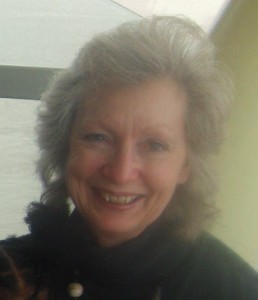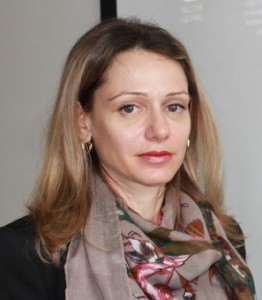On Sunday 27 April, Macedonia held parallel parliamentary and early general elections. Voters overwhelmingly chose for the ruling centre-right VMRO DPMNE, thus comfortably securing another term in office for President Gjorgje Ivanov. Unfair access to media coverage and state funding are some of the controversies that characterised the elections. The main opposition party, centre-left Social Democrats SDSM, have declared the elections unfair and are now refusing to take up the mandate. Will a full-blown political crisis develop?
Reactions from:
- Igor Micevski, School of Journalism and PR, Skopje
- Joanna Hanson, LSEE Research on SEE & Foreign and Commonwealth Office
- Sašo Klekovski, Macedonian Center for International Cooperation
- Nikica Mojsoska-Blaževski, University American College Skopje
- Cvete Koneska, Control Risks Group, London
Macedonia’s election predicament is set to turn into a serious political crisis
Igor Micevski, Researcher, School of Journalism and PR Skopje, formerly BBC World Service
 Only if one looks from afar on Sunday’s double elections in Macedonia one might view them as a clear and overwhelming victory for the ruling nationalist populist VMRO-DPMNE. And that is what the PM Nikola Gruevski, who has been in office since 2006, wants everyone to see. After all, in an election without major incidents they won 61 seats in the 123 seat Sobranie (including three seats from the diaspora vote), their presidential candidate Gjorgje Ivanov was reelected for office; they have ‘seized’ the remaining extremely important opposition strongholds (especially the town of Strumica where the leader of the opposition SDSM for many years has had an undisputed support); and they have the coalition capacity to ensure themselves a tranquil new four years in Parliament.
Only if one looks from afar on Sunday’s double elections in Macedonia one might view them as a clear and overwhelming victory for the ruling nationalist populist VMRO-DPMNE. And that is what the PM Nikola Gruevski, who has been in office since 2006, wants everyone to see. After all, in an election without major incidents they won 61 seats in the 123 seat Sobranie (including three seats from the diaspora vote), their presidential candidate Gjorgje Ivanov was reelected for office; they have ‘seized’ the remaining extremely important opposition strongholds (especially the town of Strumica where the leader of the opposition SDSM for many years has had an undisputed support); and they have the coalition capacity to ensure themselves a tranquil new four years in Parliament.
This impression, however, changes dramatically once we move a bit closer to the ‘crime scene’. From this point of view these were rather anything but ‘free elections’. Here is why: Since the Bucharest NATO summit in 2008 when due to Greece’s opposition Macedonia was denied accession, the Government in Skopje began to display signs of authoritarian rule. Firstly, state nationalism was fortified in a most bizarre way- it claimed national continuity with the antiquity and Alexander the Great. The political gain of this process was the successful emotional mobilization of the rural strata and the escalation of stigmatizing discourses on the expense of the opposition – in other words SDSM was demonized as a ‘traitorous structure working against the Macedonian national interests’ which disabled any debate about real policy issues; Secondly, the ruling party achieved an iron grip on the media sector. In 2011 the most popular and strongly critical of the Government TV station A1 was closed by the state. State colonization of the sector converted almost all media into Government apologetic structures and subsequently into typical propaganda machines. This is why nobody was particularly inconvenienced when on 24 December 2012 the opposition was kicked out of parliament by force amidst the budget debate and this is why the majority of the electorate does not ask the question why the Prosecutor’s office does not look into the serious fraud and money embezzlement accusations against the Prime Minister. Finally, VMRO-DPMNE mastered to perfection the skill to efficiently use and widen its clientelistic base. This was done by introducing populist social policies like higher pensions for the retired people financed by increasing the national debt; but most efficiently this was done by blackmailing the huge number of administration employees who are loyal to the party in fear of losing their jobs and even by introducing sophisticated methods of intimidation on the day of the elections).
The outcome: Macedonia seems to be moving into yet another serious political crisis following these elections. The first working day of the new Parliament will most probably start with 34 empty seats. The opposition SDSM did not recognize the electoral results of what it claims to be rigged elections and it demands a creation of a technical Government to organize a new and a proper process. Even though the opposition has so far proven to be incapable to execute such verbal threats, this time a lot is at stake. The following months SDSM’s spine could be broken, or it will finally come back in the game as a stronger political player.
The elections showed the institutionalisation of non-democratic practices and growing ethnic separation
Dr Joanna Hanson, Visiting Senior Fellow, LSEE Research on SEE and former Research Analyst, Foreign & Commonwealth Office
 At the weekend early but unnecessary parliamentary elections were held once again in Macedonia in parallel with the second round of the presidential elections. The results of the elections were all but anticipated. Their process, however, tells us little new or encouraging about democracy or democratic development in that country. Together they rather show the strong institutionalisation of non-democratic practices and growing ethnic separation, the reinforcement of ethnicity.
At the weekend early but unnecessary parliamentary elections were held once again in Macedonia in parallel with the second round of the presidential elections. The results of the elections were all but anticipated. Their process, however, tells us little new or encouraging about democracy or democratic development in that country. Together they rather show the strong institutionalisation of non-democratic practices and growing ethnic separation, the reinforcement of ethnicity.
The ruling VMRO-DPMNE party and its presidential candidate won a firm victory in both polls. DUI, the junior ethnic-Albanian coalition partner, had called on Albanian voters to boycott the presidential election after it failed to persuade VMRO to accept a joint candidate. This impacted on support for the opposition presidential candidate, Stevo Pendarovski, whom Albanians may have voted for. The DUI leader, Ali Ahmeti, strongly wants to see an Albanian holding a key position, namely that of President, PM or parliamentary speaker.
Although the OSCE in its preliminary election monitoring statement said the elections were efficiently administered, it reiterated the same negative observations it has made regarding previous elections: the campaign of the governing party did not adequately separate its party and state activities, voter intimidation allegations persisted throughout the campaign.Highly unbalanced media reporting was criticised as the majority of monitored media was largely biased in favour of the ruling party and its presidential candidate and mainly negative against the main opposition party. Before the counting began, the main opposition coalition had announced that it would not recognize the results of these elections.
Over the last years we have become used to one party boycotting the parliament – more than a crisis, it is starting to look like a normal political situation
Sašo Klekovski, Analyst, former Director of the Macedonian Center for International Cooperation
These extraordinary parliamentary elections were originally an attempt to solve a previous political crisis, which took place in late 2012 – early 2013. The so-called “March agreement”, signed in its aftermath, made the need of extraordinary elections clear. Later on, the opposition forgot about this demand. The April 2014 elections were called jointly to secure successful presidential elections, as their voter turnout is usually much lower.
At these elections we have seen three types of rivalry: (1) an intra-ethnic competition, between VMRO-DPMNE and SDSM – ethnic Macedonian parties – on the one side, and DUI and DPA – ethnic Albanian parties – on the other; (2) an inter-ethnic competition, which mainly played out between VMRO-DPMNE and DUI; and (3) a competition between the “Big Four” parties and a number of smaller parties trying to enter the parliament.
As for the last category, it is interesting to note that voters, by overwhelmingly opting for the Big Four, have officially sent into retirement several career politicians (including two former prime ministers) who led smaller parties in the hope to get into Parliament. Only GROM (Citizens Initiative for Macedonia) effectively performed the trick. Within the Big Four, VMRO-DPMNE and DUI both had an improved performance, as their mobilising power was much better than the opposition’s. The Social Democrats lost a number of seats, which is not unusual taking into account that they recently performed a number of changes. It was to be expected that they will not exceed the results from 2011.
Monitors have defined the election day as efficiently organised. The complaints of irregularities concern mostly the uneven playing field on the media level. The SDSM decided not to recognise the results of the elections only after the elections were completed, which I think is confusing because the State Election Committee, led by an opposition member, declared the elections regular. The inequalities in access to media were obvious much before election day – I therefore cannot justify SDSM’s belated complaints. Much will now depend upon the behaviour of the parties. I do hope the situation will get less emotional and more rational, as it is frankly quite immature at the moment. The opposition might be hoping to get a more favourable agreement on the table. Yes, we might have a political party boycotting the parliament – but can we call this a crisis? I am not sure. Over the last number of years, we have become used to the fact that there is one party boycotting the parliament. It looks more like a normal political situation to me.
The public demands accountability: it is no longer possible for the parties to win without a realistic work programme
Professor Nikica Mojsoska-Blaževski, Dean, School of Business Economics and Management, University American College Skopje
 From a general perspective (and these days it is quite difficult and non-rewarding to comment the political aspect of the elections), the recent parliamentary elections have proven that the public demands accountability, transparency and practicality. It is no longer feasible for political parties to win elections without a realistic work program, i.e. with unsupported promises. Moreover, public demands a track record of implementation of the program and accompanying projects.
From a general perspective (and these days it is quite difficult and non-rewarding to comment the political aspect of the elections), the recent parliamentary elections have proven that the public demands accountability, transparency and practicality. It is no longer feasible for political parties to win elections without a realistic work program, i.e. with unsupported promises. Moreover, public demands a track record of implementation of the program and accompanying projects.
So, what will change in the economic and social sphere, business environment, education? The economic discourse will remain unchanged, with sustainable budget deficits. There are plans for further improvement of the business environment, mainly from administrative perspective, which along with the support to innovation and entrepreneurship and new FDIs should bring large decline in the unemployment rate. Though possible to achieve, the recent track record of reduction of unemployment does not land many optimism that the target of 7 p.p. reduction of the rate will be reached (or 64,000 jobs be created in 4-years time). Despite being a right-wing political party, the leading party continues its policy of gradual improvement of the support to the poor and socially disadvantaged citizens. However, such policy can put large pressure on the public finances, given the overall environment of low taxes, pension fund deficits, required infrastructure investments, etc. Lastly, education stays priority with large planned investments in the infrastructure (much needed), in further integration of the ICT in education, expansion of subsidies to tertiary education, etc. It however appears much more difficult to comment on the expected quality improvements, except the example of implementation of internationally successful curricula into primary education.
The opposition’s decision not to recognise the elections is surprising, but not completely unjustified; we are probably looking at a low-scale but prolonged political crisis
Dr Cvete Koneska, Central and Southeast Europe analyst for Control Risks Group, London
 The outcome of the elections was not surprising. It was clear even before the elections that the ruling party was going to win and the opposition did not have the capacity to force any real change. The one thing that is more surprising is the reaction from the opposition not to recognise the elections as fair and democratic, even though in terms of the conduct of the electoral process there wasn’t a big difference compared to previous elections. There was no violence and there were no obvious electoral violations. Their reaction is therefore rather surprising, although not completely unjustified: the way the electoral campaign was carried out was unfair in terms of media coverage and access to funding, both skewed towards the ruling party. As always, the boundaries between state budget and political parties have been more blurred than they should be in an accountable and transparent democracy.
The outcome of the elections was not surprising. It was clear even before the elections that the ruling party was going to win and the opposition did not have the capacity to force any real change. The one thing that is more surprising is the reaction from the opposition not to recognise the elections as fair and democratic, even though in terms of the conduct of the electoral process there wasn’t a big difference compared to previous elections. There was no violence and there were no obvious electoral violations. Their reaction is therefore rather surprising, although not completely unjustified: the way the electoral campaign was carried out was unfair in terms of media coverage and access to funding, both skewed towards the ruling party. As always, the boundaries between state budget and political parties have been more blurred than they should be in an accountable and transparent democracy.
The decision of the opposition parties not to recognize the elections was most probably spurred by the OSCE’s reaction after the first round of the elections, calling Macedonia’s government to counter the existing democratic deficit. It is very difficult to predict if it is going to become a larger political crisis or not. The opposition is refusing to take up the mandate and is calling for a “caretaker” technical government, which is something that neither the ruling party nor the largest Albanian party are likely to accept. We might therefore end up with a parliament without the Social Democrats. That would not be a first in the Balkans: in Albania there was a long period in which the opposition refused to go to parliament, and even in Macedonia we had similar cases. So it not going to be entirely new, but it will probably make politics even more confrontational. We are probably looking at a low-scale but prolonged political crisis.
Note: This article gives the views of the authors, and not the position of LSEE Research on SEE, nor of the London School of Economics.




1 Comments